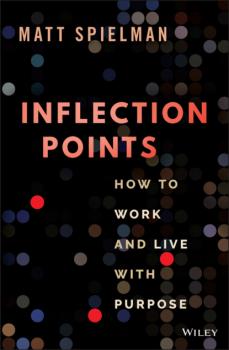John Wiley & Sons Limited
Все книги издательства John Wiley & Sons LimitedSad Love
As a woman with a husband and other partners, philosopher Carrie Jenkins knows that love is complicated. Love is most often associated with happiness, satisfaction and pleasure. But it has a darker side we ignore at our peril. Love is often an uncomfortable and difficult feeling. The people we love can let us down badly. And the ways we love are often quite different to the romantic ideals society foists upon us. Since we are inevitably disappointed by love, wouldn’t we be better off without it? No, says Carrie Jenkins. Instead, we need a new philosophy of love, one that recognizes that the pain and suffering love causes are a natural, even a good part of what makes love worthwhile. What Jenkins calls “sad love” offers no bogus “happy ever afters”. Rather, it tries to find a way properly to integrate heartbreak and disappointment into the lived experience of love. It’s time we liberated love.
The Case Against the Sexual Revolution
Ditching the stuffy hang-ups and benighted sexual traditionalism of the past is an unambiguously positive thing. The sexual revolution has liberated us to enjoy a heady mixture of erotic freedom and personal autonomy. Right? Wrong, argues Louise Perry in her provocative new book. Although it would be neither possible nor desirable to turn the clock back to a world of pre-60s sexual mores, she argues that the amoral libertinism and callous disenchantment of liberal feminism and our contemporary hypersexualised culture represent more loss than gain. The main winners from a world of rough sex, hook-up culture and ubiquitous porn – where anything goes and only consent matters – are a tiny minority of high-status men, not the women forced to accommodate the excesses of male lust. While dispensing sage advice to the generations paying the price for these excesses, she makes a passionate case for a new sexual culture built around dignity, virtue and restraint. This counter-cultural polemic from one of the most exciting young voices in contemporary feminism should be read by all men and women uneasy about the mindless orthodoxies of our ultra-liberal era.
Acoustic and Vibrational Enhanced Oil Recovery
ACOUSTIC AND VIBRATIONAL ENHANCED OIL RECOVERY Oil and gas is still a major energy source all over the world, and techniques like these, which are more environmentally friendly and inexpensive than many previous development and production technologies, are important for making fossil fuels more sustainable and less hazardous to the environment. Based on research they did in the 1970s in Russia and the United States, the authors discovered that oil rate production increased noticeably several days after the occurrence of an earthquake when the epicenter of the earthquake was located in the vicinity of the oil producing field. The increase in oil flow remained higher for a considerable period of time, and it led to a decade-long study both in the Russia and the US, which gradually focused on the use of acoustic/vibrational energy for enhanced oil recovery after reservoirs waterflooded. In the 1980s, they noticed in soil remediation studies that sonic energy applied to soil increases the rate of hydrocarbon removal and decreases the percentage of residual hydrocarbons. In the past several decades, the use of various seismic vibration techniques have been used in various countries and have resulted in incremental oil production. This outstanding new volume validates results of vibro-stimulation tests for enhanced oil recovery, using powerful surface-based vibro-seismic sources. It proves that the rate of displacement of oil by water increases and the percentage of nonrecoverable residual oil decreases if vibro-energy is applied to the porous medium containing oil. [b]Audience: Petroleum Engineers, Chemical Engineers, Earthquake and Energy engineers, Environmental Engineers, Geotechnical Engineers, Mining and Geological Engineers, Sustainability Engineers, Physicists, Chemists, Geologists, and other professionals working in this field









